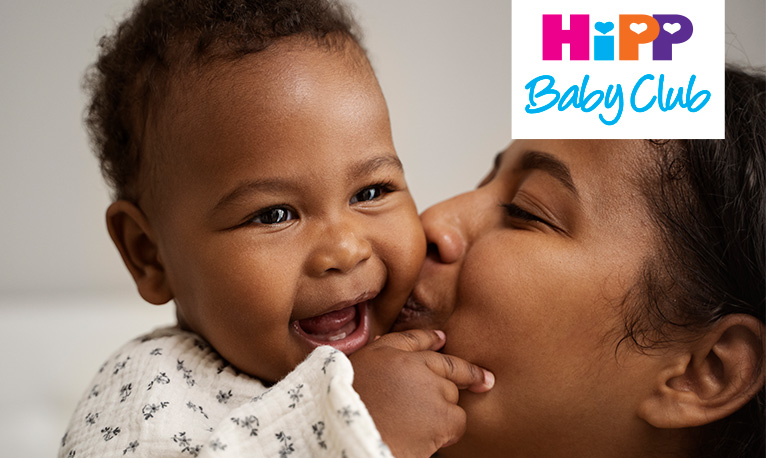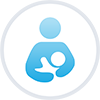Baby development milestones
Development |As a proud parent, it’s hardly surprising that you want to know everything about your little one’s growth – and whether they’re hitting those baby development milestones.
Over the next few years, your baby will go through some incredible changes. And you’ll have the honour of witnessing each and every first! All the little things you do like talking, cuddling, smiling and encouraging them to discover their own personality, will play a huge part in each of the baby development stages.
So, what can you expect to happen, and when? All babies are unique. That means they’ll develop at their own pace. So, experts can only guess when certain ‘eureka!’ moments are likely to happen. If you have any concerns about your little one’s development, you should speak to your healthcare professional.
These baby development milestones are a guide to what you can expect in the first two years. Remember, when they happen is entirely up to your little one!
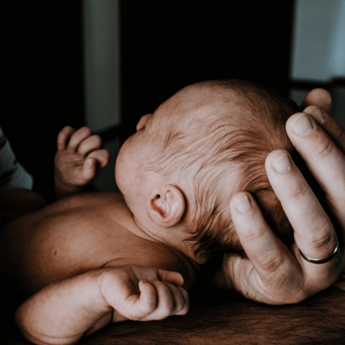
0-1 month:
Your baby is getting used to life on the outside! They can recognise familiar voices, but may be startled by loud noises (who isn’t?) They love looking at human faces. To begin with, they can only focus on things that are 15-25cm away, so get up close and personal. By the time they’re around 7 days old, babies can see the colours red, orange, yellow and green – something to consider if you’re planning to buy soft baby toys.
Communication: Crying is the only way your baby can communicate at the moment. In time, you may notice different cries for different needs (milk, cuddles, nappy change), so you’ll know how best to respond!
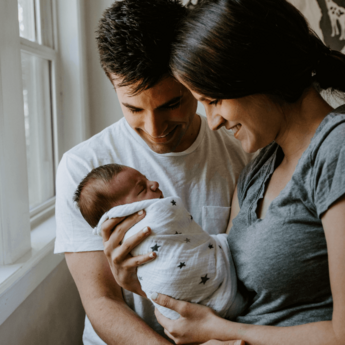
2 months:
Your baby’s eyes may follow you (or a toy, pet or other interesting object) around the room. They may move their head from side to side when they’re on their tummy. Or wiggle their little arms and legs when they’re on their back. They may even hold a toy for a moment or two before dropping it.
Communication: Your baby may make cooing sounds at you when you talk to them. You might get a smile too! They’ll hold eye contact, and cry when they’re hungry, tired, want a cuddle or need a nappy change. They’re already finding ways to let you know their needs. Isn’t it amazing?
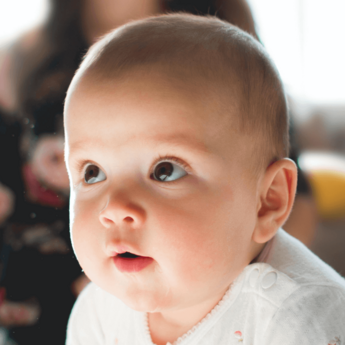
4 months:
Now they’re stronger, your baby may be able to sit up and hold their head steady. They may reach out for nearby toys, while they’re sitting. And if they get hold of one, they’ll probably wave it around or try to chew it! If they lie on their tummy, they may be able to lift up their head and look around. And when they’re on their back, they’ll bring their hands over their chest and try to touch their fingers.
Communication: Cooing, giggling, and squealing (the last may be super-loud!). They’re finding their voice and learning how to use it. They’ll love looking at themself in the mirror and cooing. They’ll get excited when they see you come back into the room. And they may make sounds when they look at toys or other people.
6 months:
One minute your baby’s on their back, the next they’re on their tummy! Rolling over isn’t the only new trick they’ll master. You may also find them on all fours in the crawling position. Their hands are on the move too. Grabbing toys, passing them from one hand to the other and attempting to pick up little things with their thumb and fingers – perfect timing for weaning.
Communication: Your little one may hold their arms up when they want you to pick them up. They’ll still love admiring themself in the mirror and they may be making sounds like ‘da’, ‘ga’ and ‘ka’...
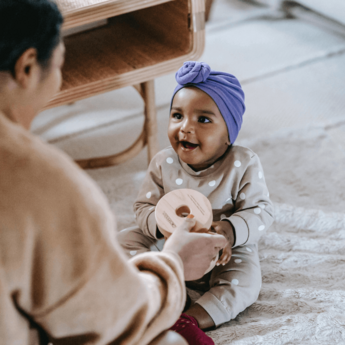
9 months:
Your ever curious little one may be doing all they can to get a better look at things. Or just to get around! Able to sit up from a lying position and pull themself up to standing, their little legs may be able to take some of the weight of their body. Before you know it, they’ll be crawling.
Communication: Keen to please, your little one may respond to ‘can you give it to me’ or ‘please put it back’. They may be babbling sounds like ‘mama’ or copying sounds they hear. They’ll recognise members of the family, probably have a favourite toy, and may be clingy if they see an unfamiliar face.
12 months:
It’s all systems go as your little one revs up and gets ready to go, go, go! They might be crawling (backwards, forwards or a bit of both), bum shuffling or cruising around the furniture – holding on for balance. They may pull themself up from a sitting position and sit down again, all by themself and even help turn the pages of a book or throw a ball.
Communication: At this stage, pointing is pretty popular. They’ll point at things they don’t recognise (so you can tell them what they are) and they’ll point at the things they want you to give them. They’ll know their name – and respond when you use it. And they’ll help you get them dressed by holding out their arms and legs for tops and trousers or skirts.
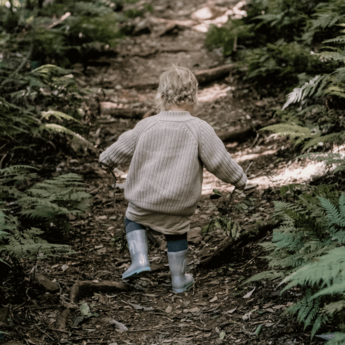
18 months:
Confident on their feet, they’ve probably mastered walking and are now attempting the stairs. They may hold your hand going upstairs and cautiously descend on their bottom. They’re increasingly independent and may be able to get a spoon into their mouth (the right way up!), turn the pages of a book and stack blocks on top of each other.
Communication: Your little one may understand and respond to simple instructions. They may know a few single words (not phrases or sentences) and even try to join in with songs or nursery rhymes.
24 months:
They’re really busy now! Able to run, jump (with both feet off the floor at the same time) and even kick a ball, life indoors and out is a lot of fun. Their motor skills may be developed enough for them to thread beads on to a string or hold a pencil between their thumb and first two fingers. They may even be drinking from an open cup – how very grown up!
Communication: Your chatty little one may be able to put two or three words together in the right order. They’ll understand, ‘I’, ‘me’ and ‘mine’ – and probably won’t be afraid to shout it! They may be able to name a number of well-known objects, dog, cat, car, perhaps. And they may be interested in role play or ‘let’s pretend’ games.
Supporting those baby development milestones
Whatever stage your little one’s at, there are lots of things you can do to enhance their physical and mental development. Our baby sensory at home article is full of ideas for things to do indoors.
Reference material:
https://www.hct.nhs.uk/children-and-families/your-childs-development/4-8-weeks/
https://www.cambscommunityservices.nhs.uk/advice/staying-safe/childhood-development/milestones

